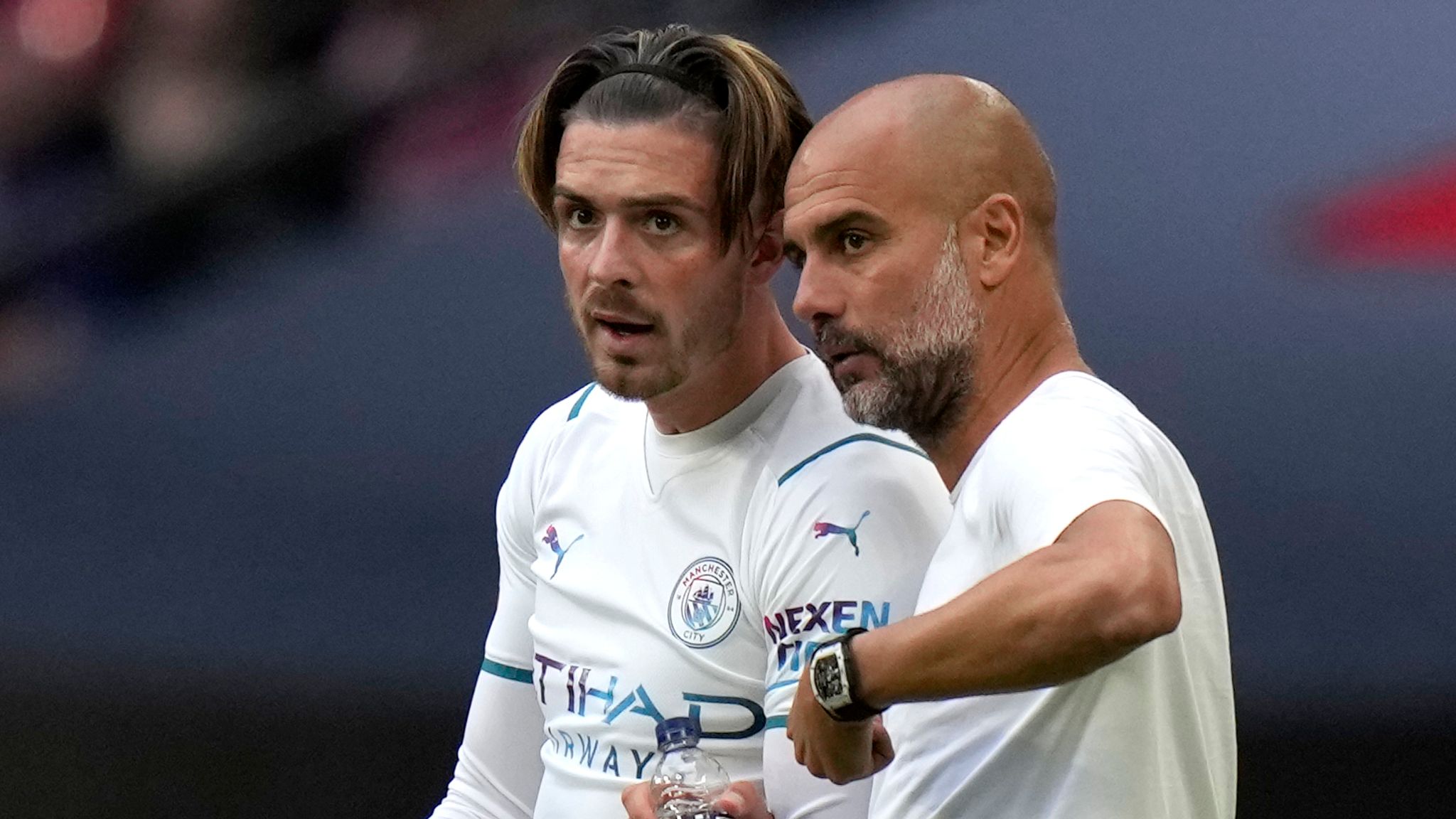
Manchester City manager Pep Guardiola has confirmed that Jack Grealish is fit to play against Tottenham Hotspur this weekend, marking a potential return for the winger after more than a month on the sidelines. Grealish last featured for City in their 2-1 victory over Wolverhampton Wanderers on October 20 but suffered an injury during training the following day, forcing him to miss six consecutive games across domestic and European competitions.
The return of Grealish comes as a significant boost for City, especially with Jeremy Doku facing an injury doubt and Oscar Bobb ruled out for several months. However, Guardiola’s announcement wasn’t just about Grealish’s availability; it also shed light on the broader issue of managing player fitness amidst international commitments, a topic that has caused friction between club and country.
Grealish’s Controversial England Call-Up
Grealish’s call-up to the England squad for their recent international fixtures sparked controversy, particularly given his ongoing recovery. Guardiola expressed clear frustration with the decision, emphasizing that his medical team had declared Grealish unfit to play before the international break. Despite this, England manager Gareth Southgate included Grealish in the squad, leading to a contentious back-and-forth between the two camps.
Speaking in his pre-match press conference, Guardiola addressed the situation with a mix of concern and pragmatism. “He has trained two days together and he has trained good,” Guardiola confirmed. However, he did not shy away from discussing the confusion surrounding Grealish’s England call-up. The Manchester City boss took issue with the lack of communication between the national team’s medical staff and City’s doctors.
“The doctor said to me that he is not ready to play,” Guardiola stated, referring to advice given ahead of City’s match against Brighton. “I believe my doctors. Why? Because every single day they are there.” His tone was not one of animosity towards the national team but rather frustration at what he saw as a breakdown in protocol. “I know people from England, I have a top relationship with England, so it is not about that. I know they want him, but they have 200 players to select. And Jack was not fit.”
Guardiola’s comments highlight the delicate balance clubs and national teams must strike. For top players like Grealish, the pressure to perform for both their club and country can be immense. Guardiola’s primary concern is ensuring that players are not rushed back prematurely, risking further injury and long-term setbacks.
Balancing Club and Country: The Kyle Walker Example
The situation with Grealish is not an isolated incident. Guardiola also touched upon Kyle Walker’s selection for England’s recent matches. Walker, who has been managing fitness issues, played significant minutes during the break, raising eyebrows about whether the right-back was fully fit to participate.
Unlike the Grealish scenario, Guardiola was more accommodating regarding Walker’s involvement. “If he [Walker] is fit, I like him to play in the national team. It is not a problem, don’t misunderstand me,” Guardiola clarified. He emphasized his support for players representing their countries, provided they are in the right condition. “Kyle has a dream to make 100 caps for the national team. Do I want to cancel this dream? Absolutely not. I would love that and I understand it.”
However, Guardiola drew a clear line: players who are not fit to play for City should not be expected to play for their national teams. “Never ever in my life have I told a player not to go to the national team, but if you are not fit, if you cannot play here, you cannot play for the national team. It is quite obvious.”
The Broader Issue: Youth Players and International Duty
Guardiola’s frustration extends beyond his first-team stars. The case of youth defender Max Alleyne, who returned to City injured after training with England’s Under-21 and Under-20 squads, further highlights the issue. Guardiola expressed concern about the handling of young players, who may not have the same level of medical oversight as their senior counterparts.
“You have to be fit, you have to rest, and after that, for the quality you have, you go immediately [to the national team],” Guardiola reiterated. His comments suggest a broader concern about player welfare, particularly for younger athletes who are still developing physically and mentally.
A Boost for City Ahead of Tottenham Clash
Amidst these concerns, Grealish’s return is a welcome development for Manchester City. The winger’s creativity and ability to control the tempo of the game add a vital dimension to City’s attack. With key fixtures on the horizon, including the clash against Tottenham, Guardiola will be keen to reintegrate Grealish into the squad seamlessly.
City’s injury concerns are mounting, with Doku’s availability uncertain and Bobb sidelined long-term. Grealish’s return could not come at a better time, offering Guardiola additional options in a demanding season. The Spaniard will hope that the international break’s controversies will not overshadow what promises to be a crucial phase in City’s campaign.
Looking Ahead
Guardiola’s comments underscore the ongoing challenges clubs face in managing player fitness in an era of congested fixtures and high-stakes international competitions. The relationship between club and country is complex, with both parties invested in the welfare and performance of the players. As Guardiola noted, the key lies in communication and ensuring that players are only called upon when they are genuinely fit to perform.
For Grealish, the focus now shifts back to club football. His return against Tottenham will be closely watched, not just for what it means for City’s immediate fortunes but also as a test of his fitness ahead of a demanding winter schedule. For Guardiola, the hope is that this episode will serve as a reminder of the need for careful management and cooperation between clubs and national teams, ensuring that players are protected, and their careers are not put at unnecessary risk.
Leave a Reply